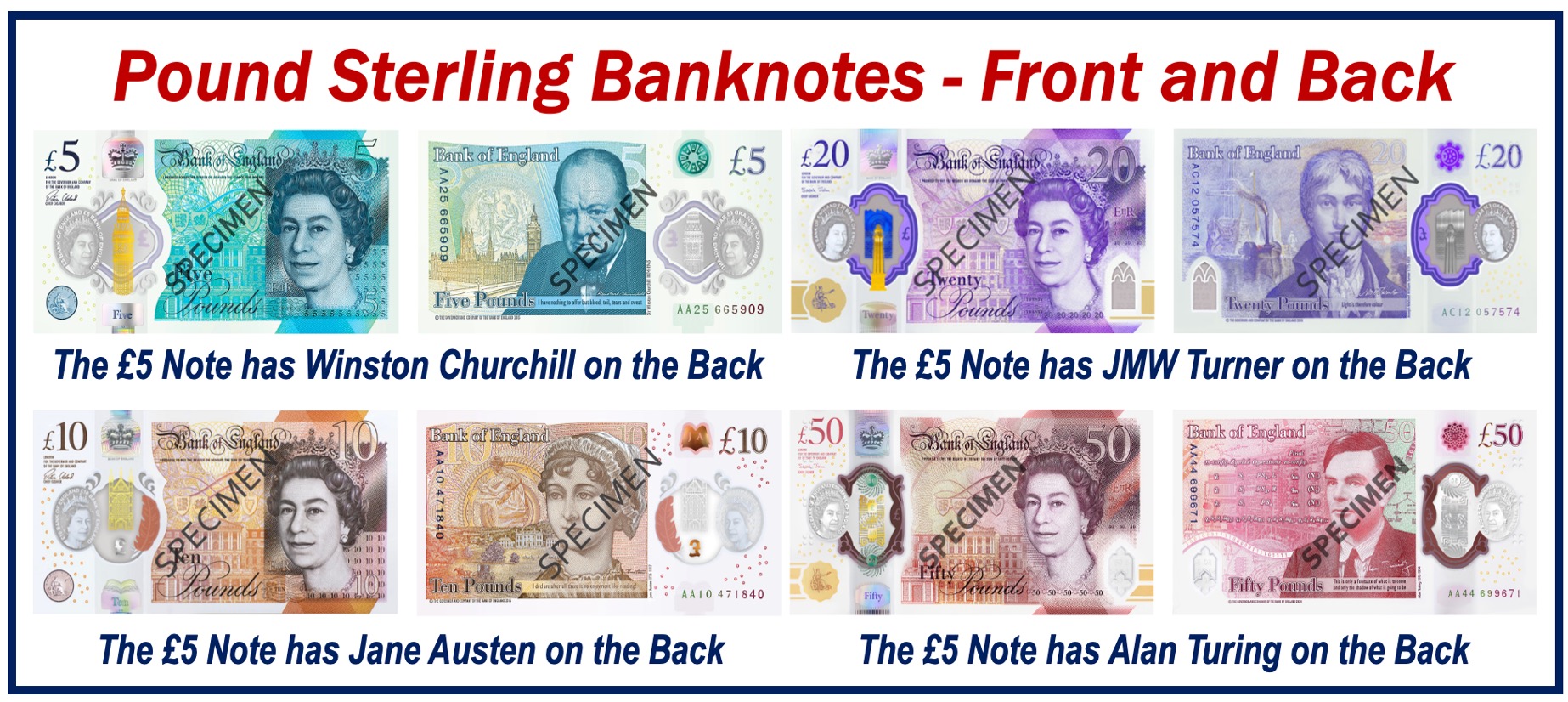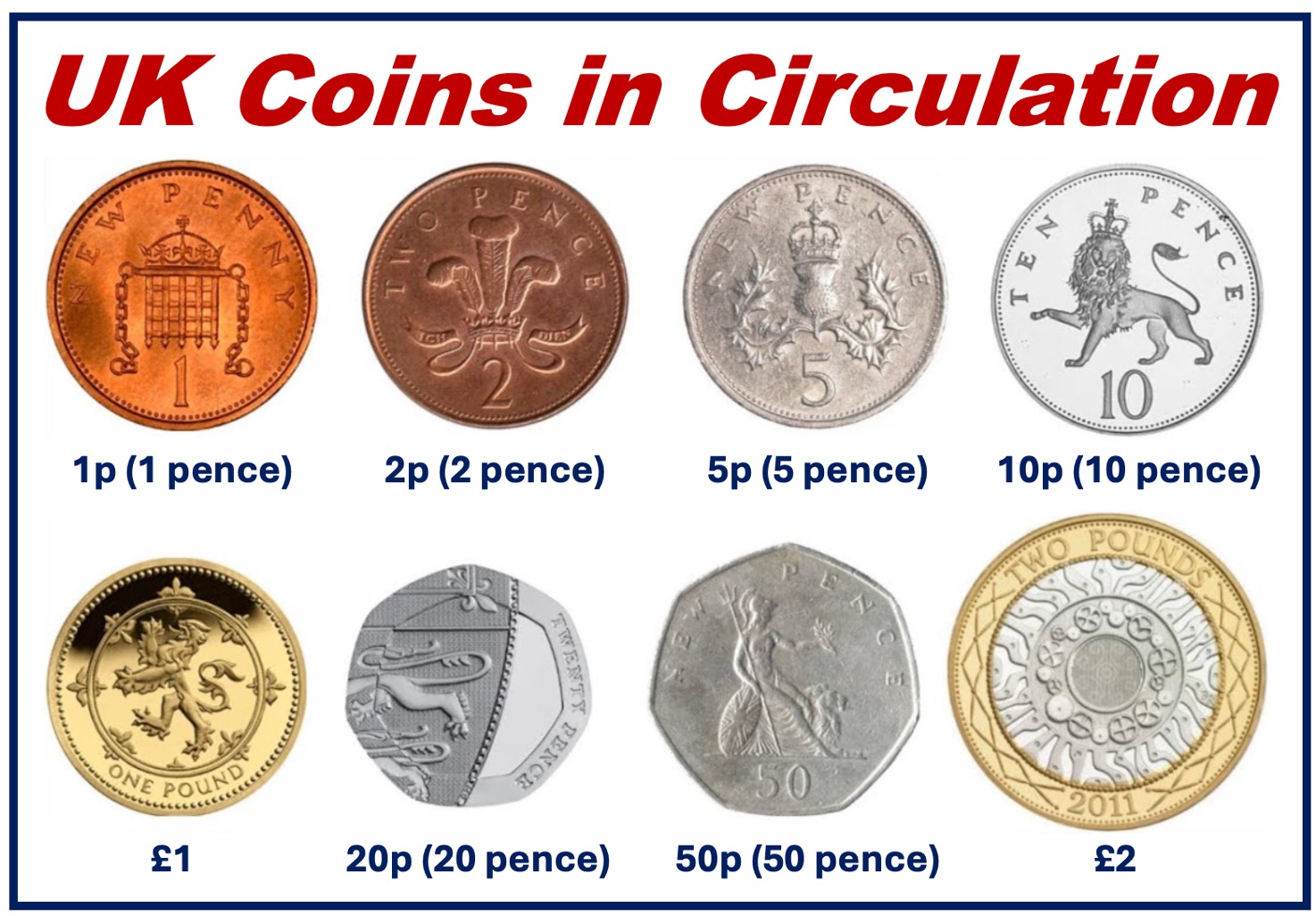What is the Pound (sterling)?
The Pound Sterling , usually referred to as the “Pound,” is the official currency of the United Kingdom (UK), which includes England, Scotland, Wales, and Northern Ireland. It is also used in several British Overseas Territories like Gibraltar, the Falkland Islands, the British Antarctic Territory, South Georgia and the South Sandwich Islands, and the British Indian Ocean Territory.
Britannica Money says the following about the British currency:
“Pound sterling, the basic monetary unit of Great Britain, divided (since 1971) decimally into 100 new pence.”
The Symbol and Nicknames
The symbol for the pound sterling is £. You’ll often hear it nicknamed “sterling” or even more informally, “quid” in the UK.
The Pound – a Bit of History
“Sterling is the world’s oldest currency that is still in use and that has been in continuous use since its inception.”
Sterling’s origins go way back to Anglo-Saxon England around the 8th century. It started as a literal pound weight of silver!
Over time, the system evolved with coins introduced, and the value and materials changed. While other countries moved to a decimal system (with 100 smaller units making up the base unit), the UK kept their traditional division of 20 shillings to a pound, and 12 pence to a shilling.
This lasted until 1971, when the decimal system was finally adopted. The introduction of decimalization was accompanied by a comprehensive public education campaign to ensure a smooth transition for the public. Some older individuals, particularly those who had grown accustomed to the traditional currency system, resisted the change to decimalization.

Coins and Banknotes
Today, there are both coins and banknotes in circulation. Coins come in these denominations:
- 1 pence (1p)
- 2 pence (2p)
- 5 pence (5p)
- 10 pence (10p)
- 20 pence (20p)
- 50 pence (50p)
- £1
- £2
Banknotes come in these denominations:
- £5
- £10
- £20
- £50
The designs of British coins and banknotes feature the reigning British monarch and other national symbols, such as Jane Austen, J.M.W. Turner, Winston Churchill, Isaac Newton, Florence Nightingale, Adam Smith, William Shakespeare, and Charles Darwin.

The Pound in the Global Economy
Sterling is a hard currency; the fourth most-traded currency globally. It is a floating currency rather than a fixed one, which means that its value fluctuates against other currencies based on economic factors.
This flexibility allows it to respond more dynamically to changes in inflation, interest rates, and the balance of payments.
The UK’s central bank, the Bank of England, is responsible for managing the pound and setting monetary policy, such as interest rates and the money supply.
Using the Pound
If you’re visiting the United Kingdom or planning to do business there, you’ll need to get familiar with the pound. You can usually exchange your own currency for pounds at banks, exchange bureaus, and some airports or hotels. Major credit cards are widely accepted, but for smaller purchases or local markets, having some cash on hand is still useful.

